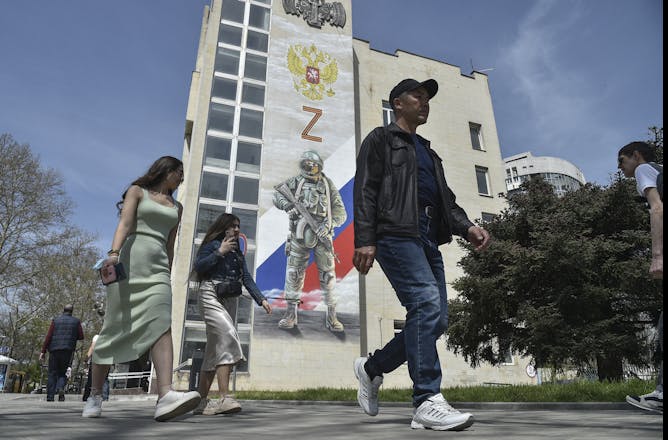|
It’s not the first time that Moscow has threatened to escalate its offensive against Ukraine – with the unspoken risk that the deployment of nuclear weapons is imminent. But, as Stefan Wolff and Tatyana Malyarenko explain, that’s no reason to dismiss Russian president Dmitry Medvedev’s latest “judgement day” warning should Ukraine strike targets in Crimea. His use of the phrase “systemic threat” in relation to any attacks on Crimea points to one of the triggers for the use of nuclear weapons in Russia’s military doctrine.
In the latest from cutting edge research, Joanna Moncrieff and Mark Horowitz unpack findings that challenge the decades-long held belief that depression is caused by a chemical imbalance in the brain. For their part Julien Benoit, Kenneth D. Angielczyk, Ricardo Miguel Nóbrega Araújo and Romain David set out how a combination of intuition, technology and fossils found in South Africa helped them revisit the dates at which
the ancestors of mammals first became warm-blooded.
|

Stefan Wolff, University of Birmingham; Tatyana Malyarenko, National University Odesa Law Academy
Crimea has been a very important strategic outpost for Russia, which is why Moscow is threatening “doomsday” if Ukraine attacks.
|

Joanna Moncrieff, UCL; Mark Horowitz, UCL
A new shows there’s no clear evidence that depression is caused by abnormally low levels of serotonin in the brain.
|

Julien Benoit, University of the Witwatersrand; Kenneth D. Angielczyk, University of Chicago; Ricardo Miguel Nóbrega Araújo, Universidade de Lisboa ; Romain David, Natural History Museum
Warm-bloodedness is the key to what makes mammals what they are today. That’s why working out when it emerged in mammal ancestors matters.
|
|
|
-
Emilia Lamonaca, Università di Foggia; Fabio Gaetano Santeramo, Università di Foggia
Trade regulation by rich countries against pests and disease is gradually making its way into the less developed nations. On top of safer foods, new research shows this could also bring sustainable growth.
-
Anthony Idowu Ajayi, African Population and Health Research Center; Nicholas Okapu Etyang, African Population and Health Research Center
Adolescent girls are disproportionately affected by sexual and reproductive health issues. These proposed law substantively addresses these disparities.
-
James Horncastle, Simon Fraser University
The EU is creating resentment in North Macedonia over its feud with Bulgaria. In the midst of the Russia-Ukraine war, it will only serve to benefit Russia in its efforts to undermine the EU.
-
Andi Hoxhaj, University of Warwick
Russia is doing oil and gas deals in the Balkans, where ethnic tensions are on the rise.
|
|

Derek Lemoine, University of Arizona
The UK recorded blistering hot temperatures as the US and Europe also experienced sweltering heat waves.
|
|
|
-
Andrew King, The University of Melbourne
Summer heat may be far from people’s minds here in Australia. But Europe’s ordeal is yet another sign changes in Earth’s climate have already reached dangerous levels.
-
Rob Thompson, University of Reading
The Met Office issued its heatwave warning six days before the mercury peaked – potentially saving many lives.
|
|